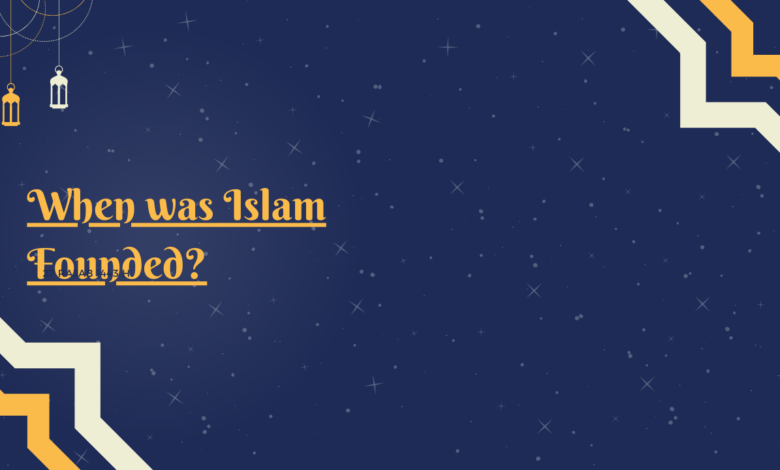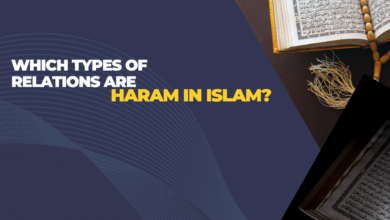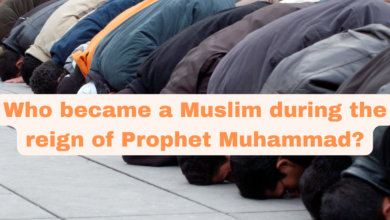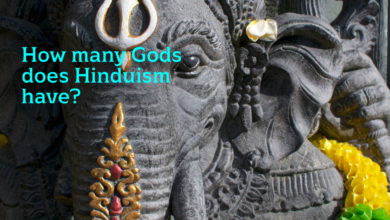When was Islam Founded?
Unraveling the Origins of Islam: From Prophet Muhammad to Global Faith

When was Islam Founded?
Islam is traditionally considered to have been founded in the early 7th century CE when Prophet Muhammad received divine revelations in Mecca.

Introduction
Islam, one of the world’s major religions, has a rich and complex history that dates back over a millennium. While many people may be familiar with the life of the Prophet Muhammad and the advent of Islam, the question of when Islam was founded is more nuanced than it appears. In this article, we will delve into the origins of Islam, tracing its development from the life of Muhammad to the establishment of a global faith.
The Life of Muhammad
To understand the birth of Islam, we must first examine the life of its founder, Prophet Muhammad. Muhammad was born in Mecca, in present-day Saudi Arabia, in the year 570 CE. His early life was marked by modesty and contemplation, and at the age of 40, he began receiving divine revelations from God through the angel Gabriel. These revelations, later compiled into the Quran, formed the core of Islamic theology and practice.
Also check.
- What is the Holy Book of Islam?
- When was Islam Founded?
- What is Shirk Islam?
- What is Laylat al-Qadr?
- What is Jihad in Islam?
The Hijra: The Turning Point
One of the crucial moments in the history of Islam is the Hijra, which took place in 622 CE. The Hijra, meaning “migration,” was a turning point that marked the transition from the emergence of Islam to its establishment as a distinct religious and political movement. Muhammad and his followers migrated from Mecca to Yathrib (later known as Medina) due to increasing hostility and persecution from the Meccan elites.
In Medina, Muhammad became both a religious leader and a political figure. He laid the foundations for a community based on the principles outlined in the Quran and the Hadith, the recorded sayings and actions of the Prophet. This marked the beginning of the Islamic state and the codification of Islamic law, known as Sharia.
The Quran and Hadith
The Quran is central to Islam’s development and foundation. It contains the teachings and guidance that Muslims believe were revealed to Muhammad by God. The Quran covers various aspects of life, including theology, morality, and social norms. It played a pivotal role in shaping the religious, social, and legal framework of the emerging Islamic community.
The Hadith, a collection of sayings and actions attributed to Muhammad, further supplemented the Quran’s teachings. These oral traditions were compiled in the centuries following Muhammad’s death and have since played a crucial role in understanding and interpreting Islamic law and tradition.
Expansion and Consolidation
Following Muhammad’s death in 632 CE, the Islamic community, or ummah, continued to expand and consolidate. The Rashidun Caliphs, the first four successors to Muhammad, played a significant role in this process. They oversaw the expansion of the Islamic state, which spread across the Arabian Peninsula, the Levant, North Africa, and Persia.
This expansion brought Islam into contact with diverse cultures and civilizations, resulting in a blending of ideas and knowledge that enriched Islamic thought. The rapid spread of Islam was facilitated by the appeal of its message, the effective administrative systems established by the caliphs, and the appeal of a united community under a single faith.
The Establishment of an Islamic Empire
By the mid-7th century, Islam had developed into a powerful religious and political force, and the Rashidun Caliphs had established the foundations of an Islamic empire. This marked the period when Islam transitioned from a nascent faith to a world religion with a growing empire.
Conclusion
Islam, as a religion, is not tied to a single moment of founding but rather developed gradually over time. Its foundation is rooted in the life and teachings of the Prophet Muhammad, the Quran, and the Hadith, as well as the experiences of the early Muslim community. The Hijra, the migration to Medina, marked a significant turning point, and the subsequent expansion of the Islamic state established Islam as a major global religion.
Today, Islam is followed by over a billion people worldwide, and its history and development continue to shape the lives of individuals and societies across the globe. Understanding the complex origins and evolution of Islam is essential to appreciate its profound impact on the world throughout history and in contemporary times.

FAQs
When was Islam founded?
Islam is traditionally considered to have been founded in the early 7th century CE when Prophet Muhammad received divine revelations in Mecca.
What was the significance of the Hijra in the founding of Islam?
The Hijra, Muhammad’s migration to Medina in 622 CE, marked the transition from the emergence of Islam to its establishment as a distinct religious and political movement. It is a crucial event in Islamic history.
Is Islam considered the youngest of the major world religions?
Yes, Islam is often regarded as the youngest of the major world religions, with its origins in the 7th century CE.
What are the foundational texts of Islam?
The Quran, believed to be the word of God as revealed to Prophet Muhammad, and the Hadith, a collection of his sayings and actions, are the foundational texts of Islam.
How did the expansion of the Islamic state contribute to the foundation of Islam?
The rapid expansion of the Islamic state in the years following Muhammad’s death played a vital role in establishing Islam as a significant global religion and shaping its history.
Was Islam founded in a single moment or through a gradual process?
Islam’s foundation was a gradual process that evolved over the lifetime of the Prophet Muhammad and the subsequent consolidation and expansion of the Islamic community.
Who were the Rashidun Caliphs, and what role did they play in the founding of Islam?
The Rashidun Caliphs were the first four successors to Muhammad. They played a crucial role in expanding the Islamic state and laying the foundations of the Islamic empire, which was essential in shaping the religion’s early history.
How has the understanding of Islam’s founding evolved over time?
Scholars and historians have contributed to a deeper understanding of Islam’s founding through extensive research and analysis of historical texts, archaeological discoveries, and comparative religious studies.




